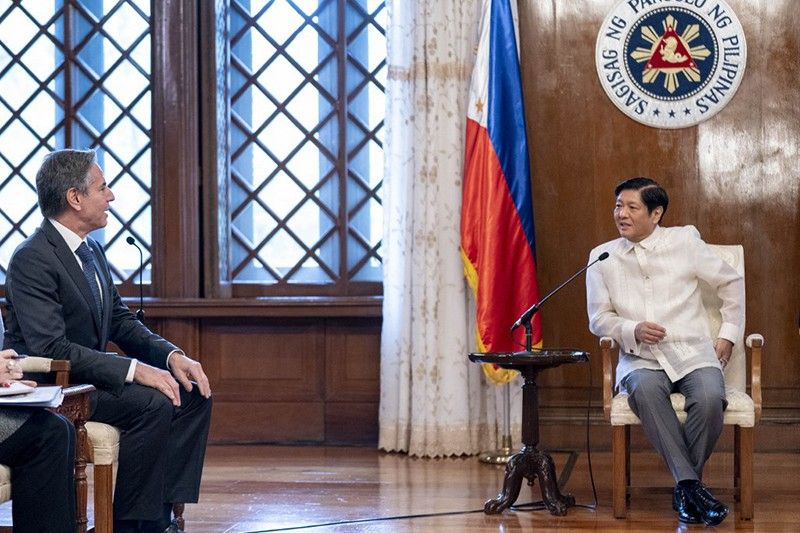An independent foreign policy for Philippine security and economy

Power shifts and strategic realignments in the Indo-Pacific have continued to shape the trajectory of global politics. The Indo-Pacific has also emerged as a critical geostrategic space where established and emerging powers compete for dominance and influence.
Through the Quadrilateral Security Dialogue (QUAD), the United States, Japan, Australia and India have increased their engagements in the region to strengthen their presence and advance their strategic interests.
Other global powers have also become increasingly aware of the political and economic importance of the Indo-Pacific. For instance, the European Union recently developed an Indo-Pacific strategy to reinforce its role as a key player in the region. Similarly, the United Kingdom announced a shift in its foreign and security policy, signaling its intention to broaden its defense and security engagements in the Indo-Pacific.
The renewed focus on the region is due to the fact that its stability and security directly affect the strategic interests of global powers. Aside from the increasing challenges posed by China’s growing economic and military power, non-traditional and evolving security threats have also become a source of concern.
Under these circumstances, the United States has closely worked with its allies and partners to address urgent challenges and build a collective capacity within and beyond the region. This foreign policy initiative is in line with the commitment of the Biden administration to restore the country’s leadership in the Indo-Pacific.
Since taking office in 2020, US President Joe Biden has taken significant steps to strengthen the country’s alliances and partnerships. He has been actively involved in strategic security dialogues, such as the QUAD, while investing in various diplomatic, economic and military initiatives.
This is evident in the recent strategic posturing by the United States in the region, highlighted by the first official visit of US Secretary of State Antony Blinken to the Philippines. The country’s strategic location and capacity to become a constructive partner on regional challenges remain crucial to the interests of the United States in the Indo-Pacific.
The long-standing alliance between the two countries has also been important in resisting coercion in the West Philippine Sea and maintaining a rules-based order in Southeast Asia.
When US Secretary of State Antony Blinken met with President Ferdinand Marcos Jr. at the Malacañang Palace on August 6, he reaffirmed the commitment of the United States to the Mutual Defense Treaty (MDT) as well as its readiness to work with the Philippines on shared challenges.
President Marcos likewise acknowledged the importance of the relationship between the United States and the Philippines. He added that the two countries could no longer separate one aspect of their relations from the other, given their shared history and close ties. President Marcos believes that the country’s alliance with the United States will continue to evolve in light of all the changes taking place in the region.
Secretary Blinken also met with Foreign Affairs Secretary Enrique Manalo in a virtual joint press conference to discuss measures to elevate and strengthen the alliance. In a brief statement, he discussed potential partnerships in sectors including health security, food security and clean energy.
Secretary Blinken outlined the plans of the United States to deepen its economic ties with the Philippines through strategic initiatives such as private sector investments and public-private partnerships. He also emphasized the significance of working with the Philippines to promote democracy, the rule of law, human rights and other shared values in the region.
For his part, Secretary Manalo welcomed the commitment of the United States to work closely with the Philippines in addressing emerging security threats and cross-cutting challenges. He then outlined a number of initiatives aimed at fostering high-level cooperation between the two countries. These include a potential meeting between President Marcos and US President Joe Biden on the sidelines of the upcoming United Nations General Assembly (UNGA) and a possible visit by President Marcos to Washington DC. In addition, Secretary Blinken and Secretary Manalo agreed to hold another 2+2 security and international affairs conference at the beginning of 2023.
Despite being undermined by the policy pronouncements of the previous government, these recent developments demonstrate a new positive momentum and significance of the alliance. It also highlights the fact that countries like the Philippines can carve out a more relevant role in the region.
Given the current security landscape in the Indo-Pacific, the Philippines should maximize its engagements in order to position itself and safeguard its strategic interests. Fostering multilateral and minilateral cooperation with like-minded states is also an option that the country can explore. If prioritized, these initiatives could create opportunities for the Philippines to contribute to the promotion of a rules-based order that is necessary to realize a Free and Open Indo-Pacific.
As the chief architect of the country’s foreign policy, President Ferdinand Marcos must strategize and take a close look at the changing dynamics of the Indo-Pacific and the risks and opportunities it poses. His decisions and actions should not be influenced by the agenda of any power, including the United States and China.
Over the next six years, President Marcos will have the opportunity to enhance the economic and security potential of the Philippines. If he remains true to the commitments he made in his first State of the Nation Address (SONA), the Philippines will be able to uphold an independent and inclusive foreign policy guided by the priorities and national interests of the Filipino people.
Jikko Alfonso P. Puzon is a research manager at think tank Stratbase ADR Institute.
- Latest




























